From Morocco to Mariupol. The story of a 21-year-old foreigner who was "sentenced" to death by shooting in Donetsk

On 9 June, the Russian occupiers in Donetsk "sentenced" 3 foreigners to death. They were all fighting for Ukraine. The terrorists accused them of being "mercenaries".
The "trial" lasted only a few days. And the "sentence" shocked the world. The following day, the story was on the front pages of almost all the British newspapers, as two of the three [prisoners] are citizens of the United Kingdom.
The third victim of the militants is Brahim Saadun, a 21-year-old Moroccan.
The Ukrainian and British Ministries of Foreign Affairs, the British government, the Council of Europe and even the United States have spoken out about the barbaric approach of the Kremlin-controlled militants. However, no such statements have been issued by Morocco, even though one of its citizens was also on trial.
Ukrainska Pravda spoke to Brahim’s friends. In this article, we describe how Brahim came to Ukraine and went to war, what he told his friends about being on the front, and how he received a "death sentence" in the 21st century in the heart of Europe.
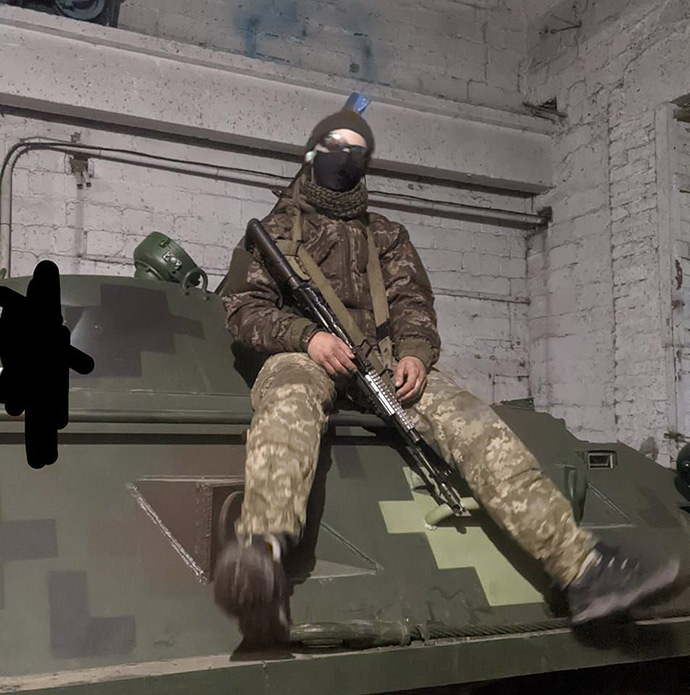
From Morocco to Ukraine
Brahim was born in 2000 and grew up in Morocco. Friends prefer not to talk about his family and his personal life in his homeland. Brahim’s relations with his family were not the best, and his family does not wish to speak to the press. His father is known to be a member of the military at home [in Morocco].
"He loved self-development, knows lots of languages (according to Brahim in the video made in captivity, he speaks 5 languages - Ukrainska Pravda), is interested in social issues." This is how Muiz, his close friend from Kyiv, describes Brahim.
In 2019, the young man came to Ukraine on a student visa. He organised this relocation himself, the family paying only for his ticket.
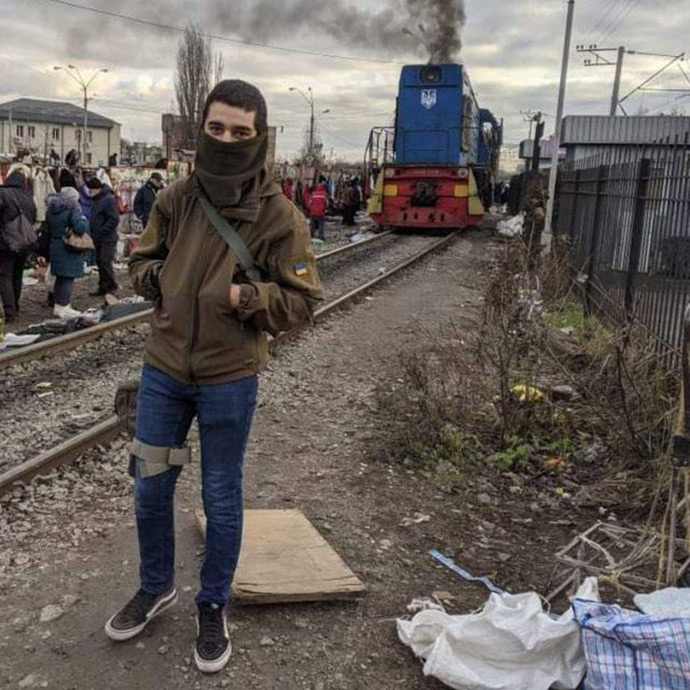
Brahim then enrolled in the Faculty of Aviation and Space Systems at the Kyiv Polytechnic Institute. He quickly made friends and social connections.
"The life and soul of the party and our faithful friend," an acquaintance wrote about Brahim [on Facebook].
Muiz, who has told us all about this young Moroccan man, met him in one of the most popular and progressive places for young people in the capital:
"Brahim has contacts [connections] everywhere. He introduced me to lots of people."
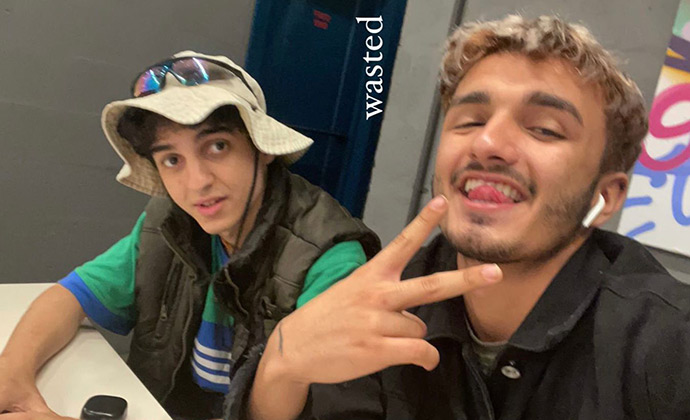
Army
In 2021, Brahim decided to swap his studies for military service.
"He said to me personally that he didn't feel useful," Muiz recalls. "He wanted to do something that would allow him to be active, to gain life experience and feel useful."
Last autumn, the young man signed a contract with the Armed Forces of Ukraine.
"He began his training in November and took part in active hostilities from the beginning of February," said Dasha, a friend.
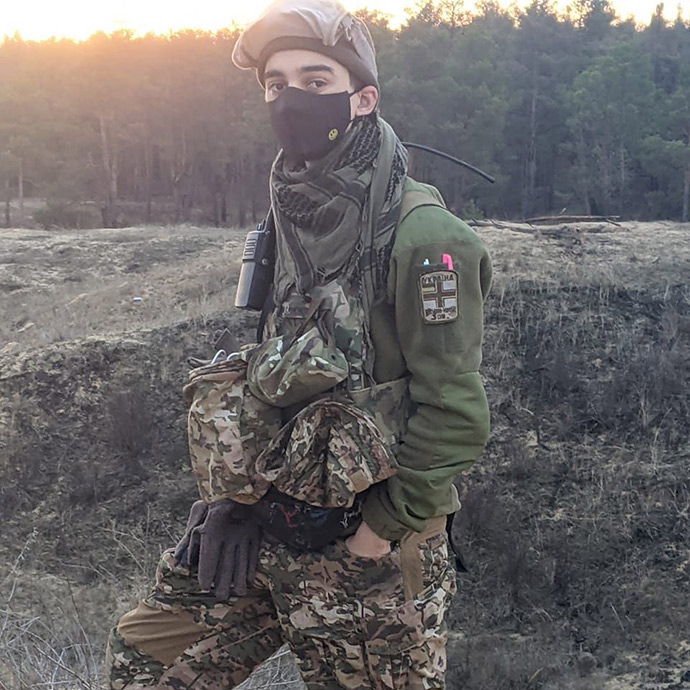
Brahim started as a driver. Later, he trained to be a fire spotter. One of his friends helped Brahim with this.
Brahim served as a Moroccan in the 36th Marine Brigade. In March-April it became one of the units that drew most attention. The unit took part in the heroic defence of the besieged Mariupol.
Captivity
Brahim could contact his friends from the front line.
"His phone was broken, so he would borrow one from his friends," says Muiz. "He would send short messages. He would talk about his emotions. He cared about me and would say, ‘Don't worry, go to the bomb shelter’ and so on."
Brahim said little about his service. He said he hadn’t even killed anyone. His job was to monitor how the enemy [Russian soldiers] moved and guarded the territory.
The last time he was in touch [with friends] was on 27 March, from the territory of the Azovmash plant in Mariupol [this is the enterprise in Mariupol which produces rail components, cranes and other large metal structures, not far from Azovstal]. The last thing his friend received from Brahim were 4 messages: "Everything is fine, everything will be fine, there is no internet."
Then came 3 weeks of silence. At the time, the whole country was worried about the fighters in Mariupol. The situation escalated quickly.
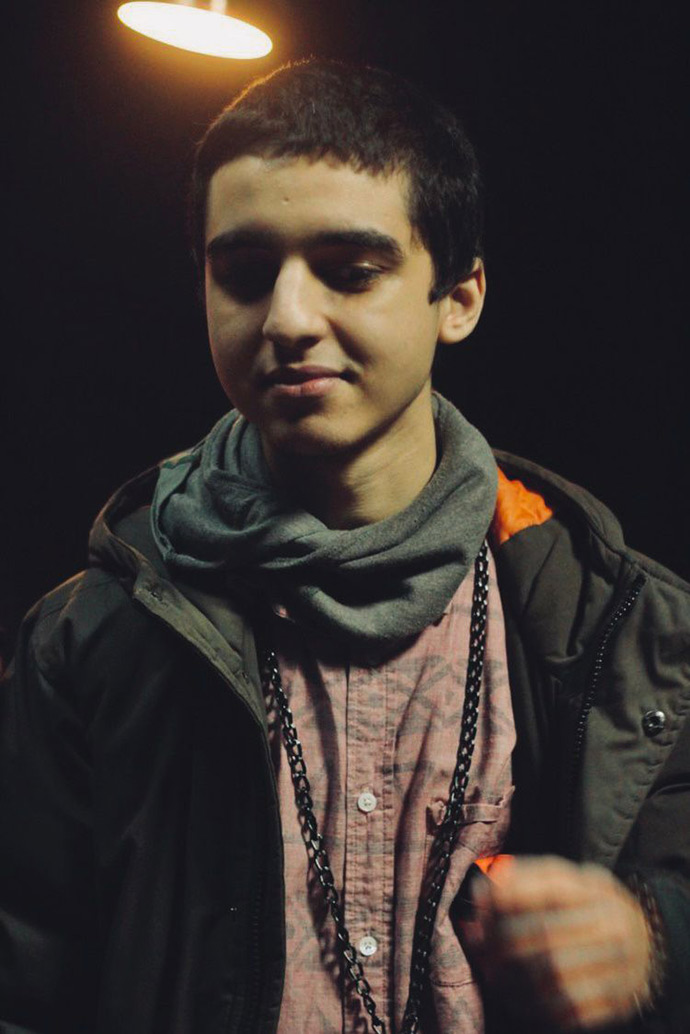
In the first half of April, the Marines said that they were running out of ammunition and the "last battle" was about to take place. One of Brahim's military mates, whom he knew before his service, the British man Aiden Aslin, then told the family that military personnel were planning to lay down arms due to very difficult conditions.
On the same day, it was reported that part of the 36th Brigade was able to break through [a cordon] and could reach the Azov Regiment stationed in Azovstal. In the process of breaking through, some infantry defenders surrendered.
According to friends, this was the point when Brahim was captured by the militants. His lawyer would later tell another version, saying that he surrendered near Volnovakha [in Donetsk Oblast, temporarily occupied by militants].
After 3 weeks of silence, friends saw a video of a Moroccan posted on a militant YouTube propaganda channel. It was later shown by the Kremlin's Russia-24 TV channel.
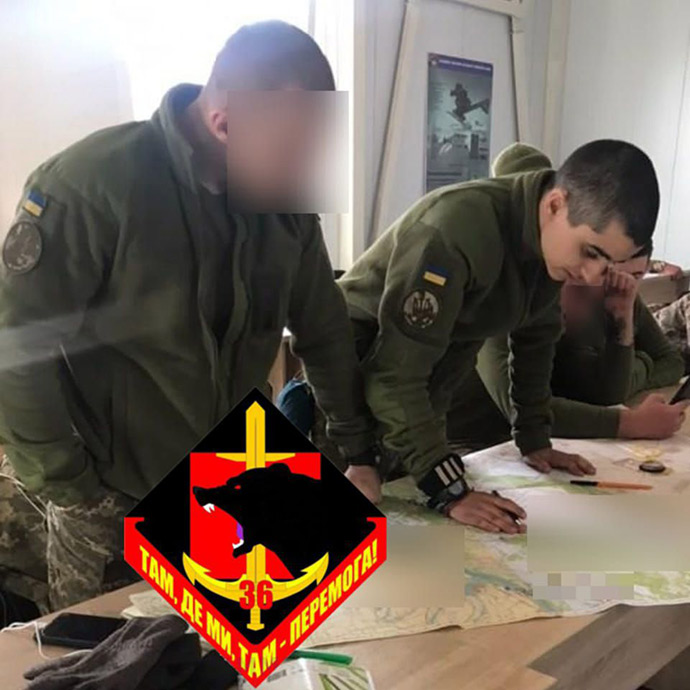
According to a friend, Brahim looked scared on the video:
"He has some mental health problems and this is obvious on the video. He needs psychological help."
Nevertheless, Muiz admits that he was even happy to see his friend alive in captivity:
"I thought he would be treated like a prisoner of war, that he would just be exchanged. Who needs him? If the British can be used for political purposes, what do they want with a citizen from a neutral country?"
Brahim's friends in Kyiv keep in touch with his sister. The young man did not get in touch with any of them when he was in captivity.
The next thing Brahim's relatives saw were the terrorists' statements about the "death penalty" that threatens foreign defenders of Ukraine.
"Court"
In early June, the terrorist DPR [self-proclaimed Donetsk People’s Repiblic] reported that it had "completed the investigation" into three foreigners and would "judge" them. They meant Brahim, Aiden Aslin, and another Briton, Shaun Pinner.
The military personnel were accused of "mercenary" activity. [Militants] threatened them with the death penalty, which was the eventual "sentence" they received.
Mercenaries, ie. foreign participants paid to take part in war, are punished in civilised countries. However, even the so-called "DPR Criminal Code" [the Criminal Code of the self-proclaimed Donetsk People’s Republic] says that this status does not apply to a person if he has lived in the country for which he is fighting for some time. That was Brahim’s story.
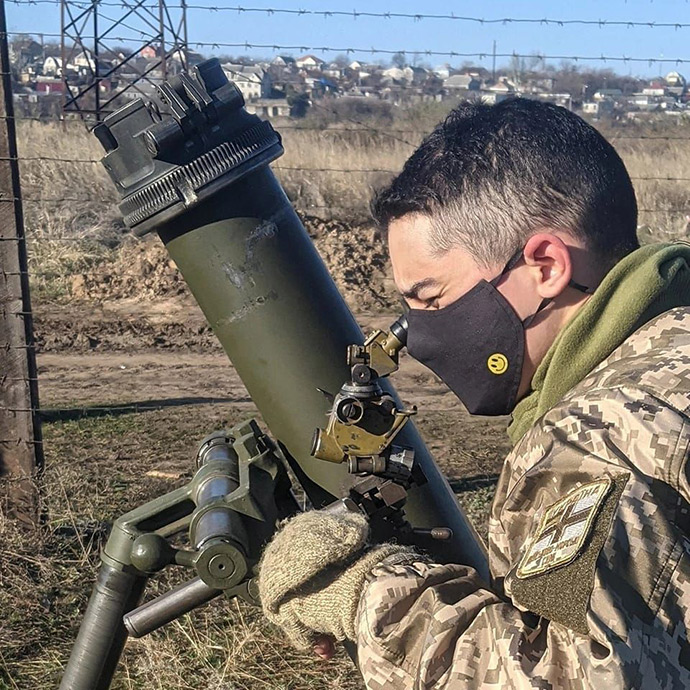
His lawyer should have made these arguments. But in a fake "republic", protection [by lawyers] is "appropriate". The militants gave [the foreign prisoners of war] not local lawyers, but Russian lawyers named Dmitrii Ershov and Igor Vagin. This shows that these are ordinary, "tame" lawyers belonging to the occupiers [who will do whatever they are asked to do].
The lawyers are giving comments to Russian propagandists, calling their clients "mercenaries" and saying the occupiers are "loyal" to them.
There is almost no information online about these Russian lawyers and their activities. The only thing one can find out about Vagin from Moscow is that his son was involved in a case of bank fraud in 2018, and that the family property was searched. This lawyer was also awarded the medal "For Merit in Protecting the Rights and Freedoms of Citizens" in Russia.
The Russian media has also called Ershov a "Moscow lawyer." However, a lawyer of that name is not registered in the Russian capital.
Vagin and Ershov are not only working with these 3 foreigners. They are also "protecting" other Ukrainian prisoners.
A few days ago, Vagin repeated to the Kremlin media yet again that one of the infantrymen had "confessed to killing civilians."
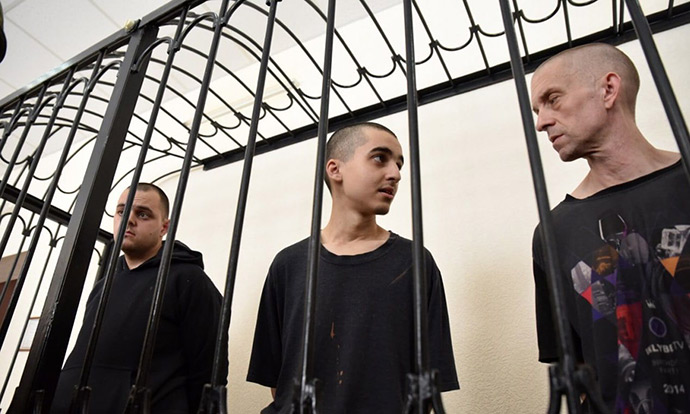
Such "spoilers" are nonsense for real [legal] defenders. For example, even the lawyer for Vadim Shishimarin, the first convicted Russian war criminal in Kyiv, did not tell reporters about the defence's position until the appropriate time in court.
This means that the captured Ukrainian defenders are being deprived of real protection [by lawyers].
***
Brahim's friends complain that the Moroccan government has abandoned its citizen, and that its embassies have not even made public statements.
There are still questions about the fate of "convicted" foreigners. Would the militants really dare to shoot them? Will they be used as hostages for blackmail in negotiations?
One thing is absolutely clear. This "sentence" has become another way for the world to understand who it is really dealing with.
The longer this goes on, the fewer "neutral countries" will remain in the world, as Brahim's friend describes Morocco.
Sonia Lukashova, Ukrainska Pravda